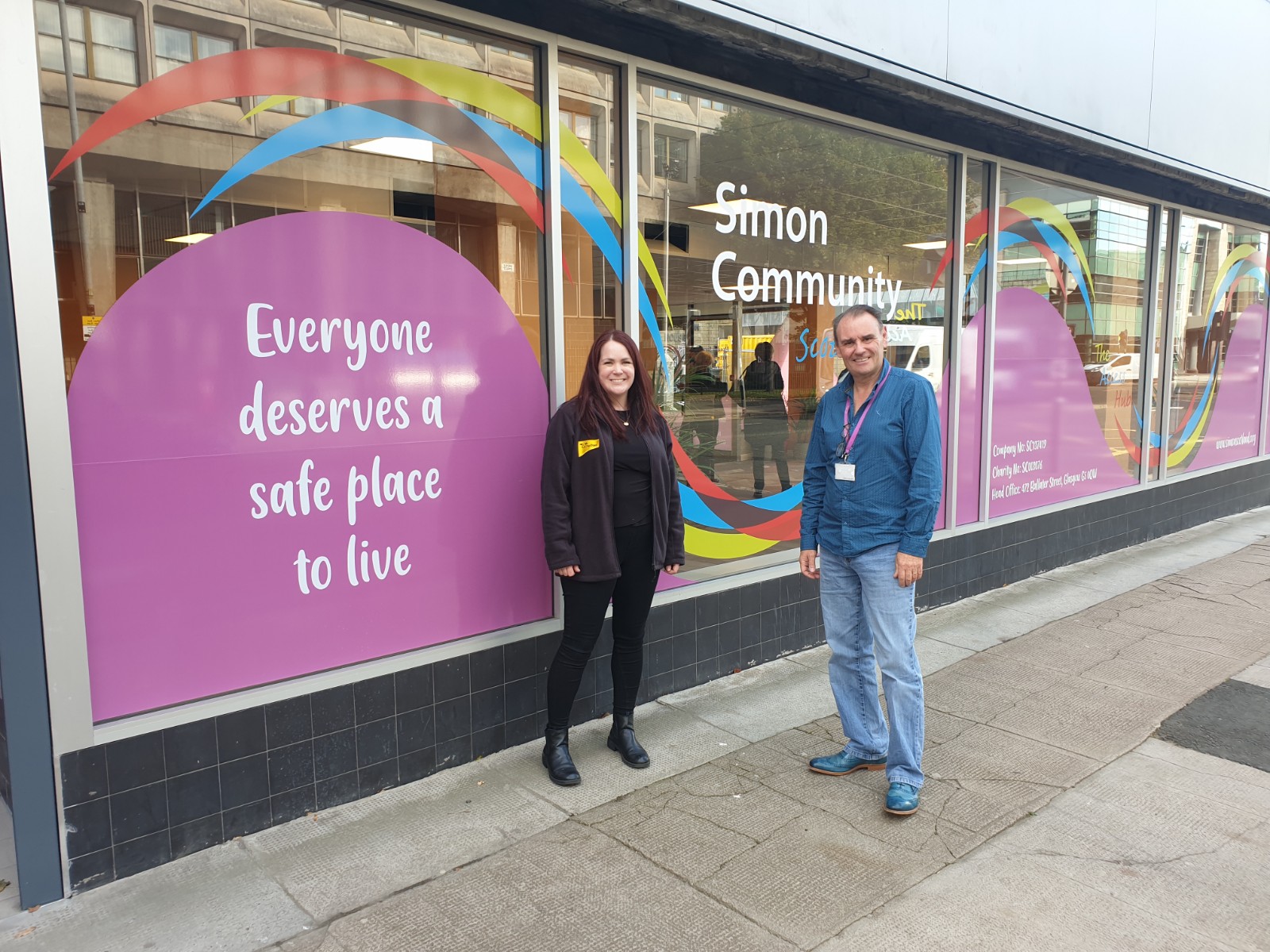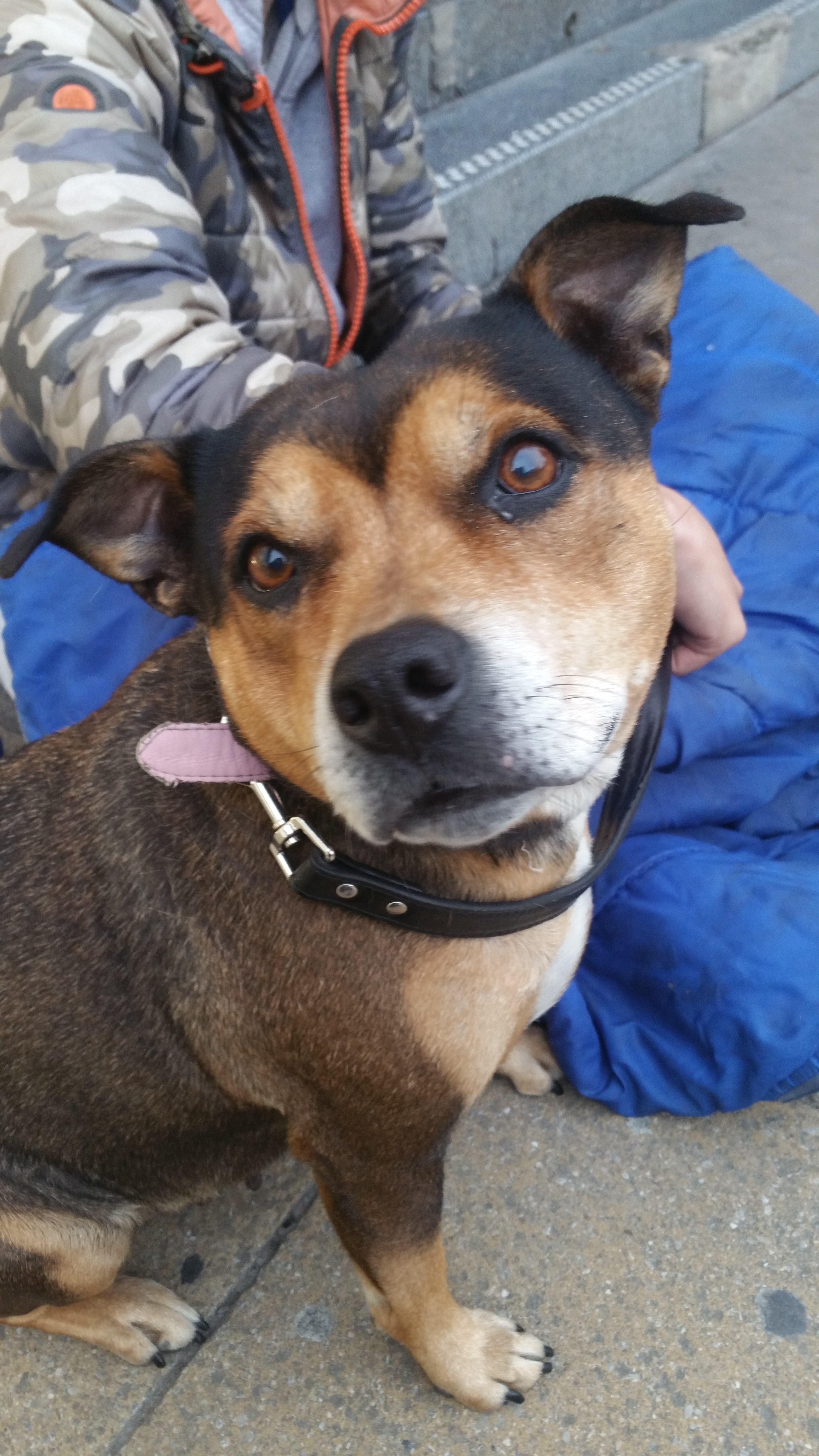Charities team up to hire new pets engagement officer for homeless dog owners
Simon Community Scotland has linked up with the UK’s largest dog welfare charity to launch a brand-new initiative to increase dog-friendly accommodation options for homeless dog owners in Scotland.

Cat Birt with Hugh Hill
Currently, many emergency and temporary accommodation providers do not accept dogs, leaving owners unable to access the housing and support they and their dogs need – unless they make the heartbreaking decision to give up their pets, who are very often their only source of comfort and emotional support.
Dogs Trust and homelessness organisation Simon Community Scotland have therefore launched a ground-breaking partnership, kick-started by the creation of a unique role of ‘pets and housing development and engagement officer’. It is hoped that this role, jointly funded by both charities, will mean less dog owners in Scotland have to make the difficult choice between a safe place to sleep and their beloved pet.
Cat Birt, who has been appointed into the role, will be working with accommodation providers to highlight the benefits of the human-animal bond and the importance of keeping people and their pets together. She will be developing and delivering a new regional strategy for Scotland, working with Simon Community services, as well as other organisations and housing providers across Scotland, to increase accommodation and support for homeless dog owners.
Cat said: “The latest figures suggest there are up to 13,000 people in Scotland that are homeless at any one time, which includes people who are rough sleeping, sofa surfing or living in a vehicle. A further 11,665 families live in temporary accommodation.
“Some of these people will have dogs or other pets but sadly the majority of accommodation options available to them do not accept companion animals. There are so many positives and benefits to keeping people with their pets, and that’s what my role has been created to explore, progress and ultimately try and change the tale for vulnerable people and their beloved dogs.
“Over the next 12 months, I’ll be working closely with accommodation and housing providers, staff and service users on how being inclusive of dog owners and their companion dogs can have wider benefits. We will support these providers to welcome dogs safely and provide practical help and on-going advice on the best way to implement dog-friendly policies and practices.”

Simon Community Scotland and Dogs Trust have a strong track record of joint working. Last year, Dogs Trust contributed to Simon Community’s ‘Paws for Thought’ guidance, which gave advice to organisations who might otherwise be wary or unsure of how to respond to people who are homeless, when accompanied by their pet dog. The report and recommendations gained the support of housing minister Kevin Stewart MSP.
Mr Stewart said: “Pets offer comfort, stability and much-needed companionship for someone facing homelessness. Being forced to choose between their pets and a safe place to live is a choice no one should have to make.
“That’s why I’m glad to see this job being created by the Simon Community and Dogs Trust. It will help set out why pets matter and provide practical steps to support social landlords in helping people experiencing homelessness.
“Respecting people’s meaningful and important relationships with their pets is an important element of ending homelessness in Scotland.”
Hugh Hill, director of services and development at Simon Community, said: “We’ve seen first-hand that for anyone experiencing any sort of housing crisis their dog will often be their only companion and source of love and support. That’s why we’ve already taken steps to make our services dog-friendly, but there’s much more work to be done for us as a charity, and for the sector as a whole.
“We are grateful for Dogs Trust’s continued work to keep homeless people and their dogs together during these uncertain times and are very much looking forward to working with them on the new jointly funded role and seeing how this will benefit dog owners who are homeless or in housing crisis.”









